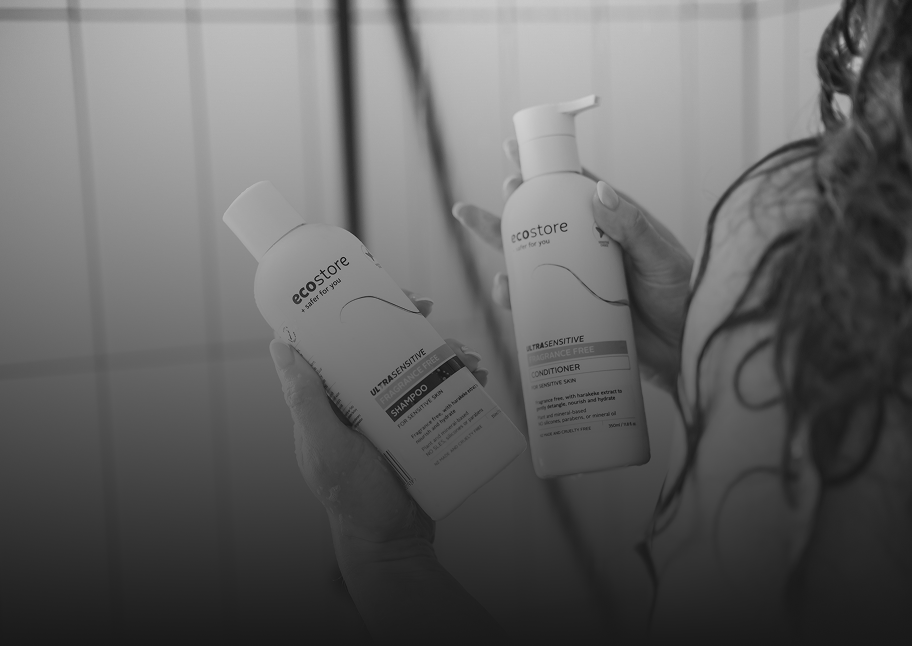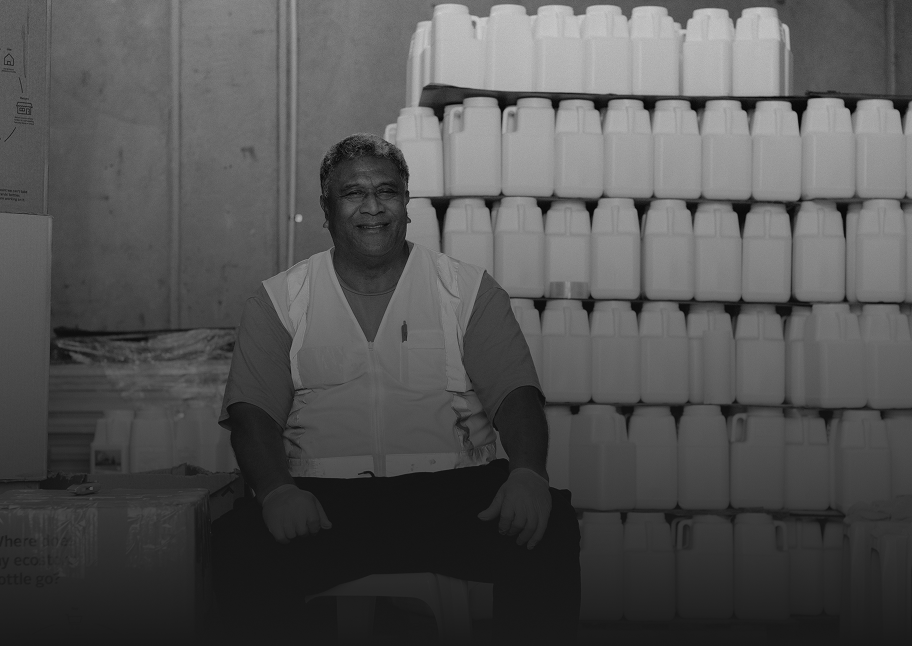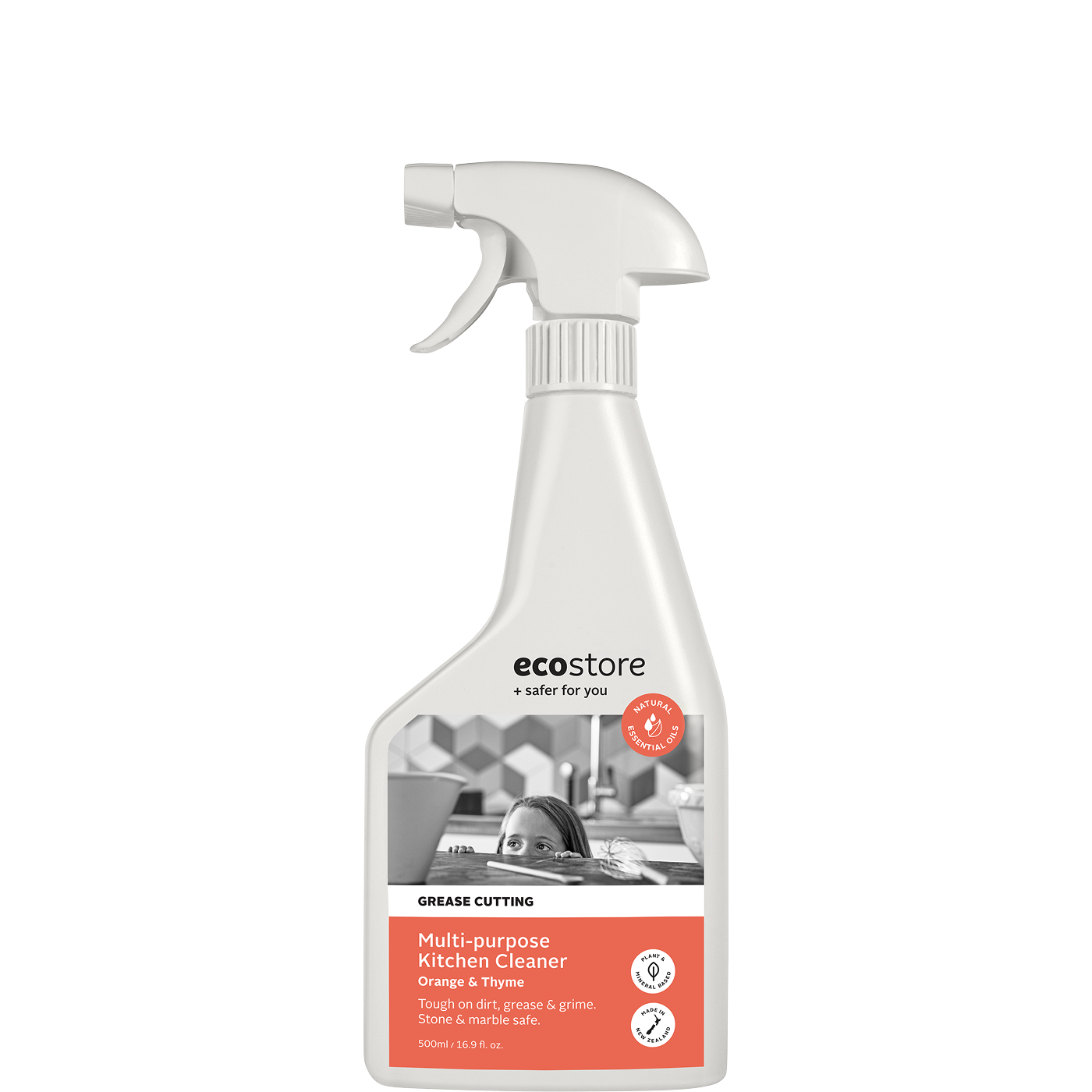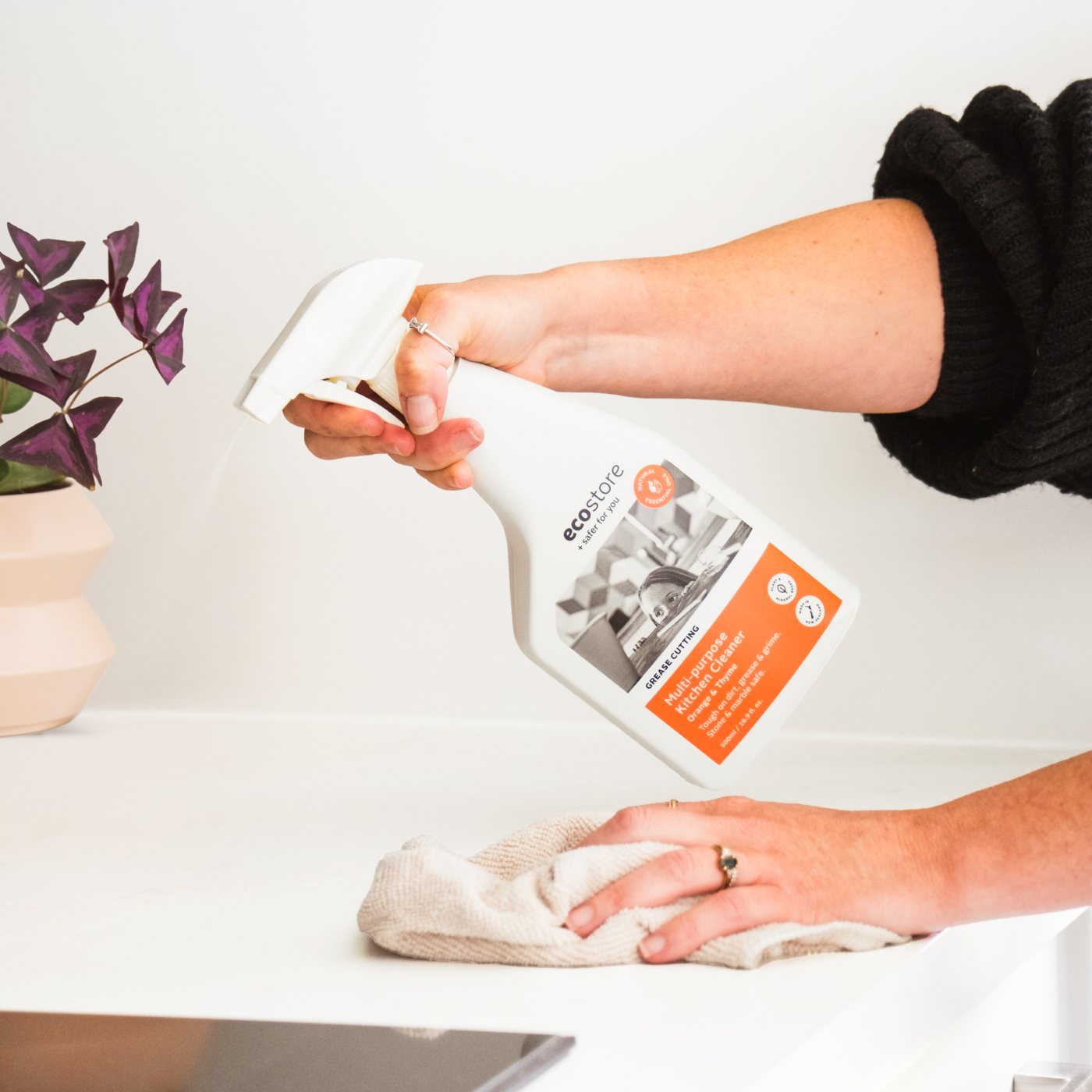Greywater is the name given to the wastewater that comes from your shower, bath, hand basin and washing machine and with proper, council-approved systems in place, it can be safely re-used on your flower gardens, lawns and trees (or to flush your toilet). Re-using greywater can extend the service and life of your septic system as well as easing pressure on local water treatment facilities and is a great way to conserve water and save costs, but it can also vary a lot in quality and toxicity so it's important to take some sensible precautions.
Keep nasty chemicals out of your grey water
We've listed a few chemicals below that are good to avoid if you can.
Nasties in laundry products include:
- Optical Brighteners (also known as fluorescers or whitening agents) These are added to laundry products to make white clothes appear whiter. They're actually dyes that reflect blue light, making clothes look less yellow and therefore extra clean. They are poorly-biodegradable, and if released into waterways can poison aquatic life. It has been shown that the application of optical brighteners to plants and flowers decreased pollination rate by bees and other insects.
- Bleaches (Sodium hypochlorite/Ammonia) Bleaches and disinfectants can kill beneficial soil organisms and damage plants. Avoid using greywater containing harsh chemicals or bleaches, or after washing out hair dye or paint products.
- Phosphorous A finite resource, a valuable nutrient to plants, and an essential component to all life. Disposal of wastewater containing phosphorus is wasteful and can result in eutrophication - over-growth of aquatic vegetation which disrupts the normal function of aquatic ecosystems.
- Benzotriazole This ingredient has come under scrutiny as an aquatic contaminant due to its low biodegradability and classification as toxic to aquatic life. It is only partly removed in wastewater treatment and once deposited into the aquatic environment can cause long-term adverse effects.
Nasties in your shampoo and conditioner include:
- Silicones (Dimethicone) Silicones are used in hair care products to improve softness and control ‘frizz' but they're not biodegradable and therefore not greywater-safe.
Other sensible precautions:
- Don't use more of your detergent than necessary - it'll just result in a higher concentration of chemicals
- If you use cleaning products with a high concentration of chemicals, then it's a good idea to alternate greywater use with fresh water so your soil doesn't get overloaded with chemicals.
- Swimming pool water isn't suitable for re-use due to the high chlorine content
- Label greywater piping and tanks accordingly so people don't mistake it for fresh water, and make sure children can't get access to it.
- Never use the rinse water from washing nappies on your garden
- Don't use greywater on edible plants
If you're thinking of installing a greywater system, start by contacting your local council for advice. You'll need a building consent for any plumbing work and possibly a resource consent for any discharges of greywater. For more great information on reusing household greywater take a look here http://www.smarterhomes.org.nz/water/re-using-greywater/
If you already have installed a greywater system we'd love to hear about it - and even better if you have some tips or pics to share!
Read more

Celebrate summer with our thirst-quenching, summery drink (or mocktail) that not only tastes delicious, it sparkles with festive colours too! Ingredients (makes around 6 glasses) 2 cups fresh or ...

Benzalkonium chloride is an antibacterial chemical that's added to household cleaners and cosmetic products because it kills germs, but that's not all it does. It also has the potential to cause sk...







